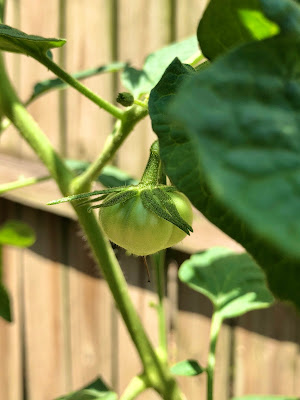This COVID-19 lockdown has seen so many firsts. It has seen the birth of many gardeners, chefs, bakers, painters, singers, dancers, comedians, and even, hairdressers. The COVID-19 lockdown has also seen me evolve - - from a gardener, who only grew flowers, to a first-time vegetable grower. I do not know if we would have ventured into vegetable gardening had the coronavirus not shut the doors of the Indian grocery stores here where I live.
With the COVID-19 spread across the world and supply chain disrupted, the Indian grocery stores from where we used to get our “deshi” vegetables had to close down their stores. This meant no okra, bitter, bottle and snake gourds, green chillies, red and Malabar spinach, flat beans, etc. for us anymore. Cauliflower, cabbage, eggplant, and spinach were still available at American grocery stores, although not all the time, like the pre-pandemic days.
A month into the lockdown, this “deshi” soul began to crave a little variety in her daily vegetable servings. After all, rice is Bengalis’ staple food no matter where they choose to live. And when you eat rice, you need some fried veggies or veggies cooked in a light gravy to go with it.
One day on a trip to Home Depot, an American home improvement retailer that never closed its doors during this pandemic, we bought spinach, tomato, and habanero pepper seedlings from its nursery. That was the beginning! Once we saw that these seedlings were growing well under our care, we purchased packets of “deshi” vegetable seeds that the only Bangladeshi grocery store in the area was selling. We purchased seeds of okra, flat beans, eggplants, spinach, red spinach, and bottle gourd. We bought soil mix and pots to germinate the seeds. Once the seeds germinated, we sowed them in our backyard. It’s July now - - our vegetable plants are growing taller every day, some have started to bear flowers, and the tomato plant has little green fruits hanging from its branches. We have harvested our two spinach varieties and cooked them. You may not all believe me, but there is a world of difference in taste between store-bought and homegrown vegetables. Literally!
According to the The Economist, the coronavirus lockdown has inspired a surge in gardening not seen since the World War II. In times of uncertainty, people’s natural instinct is to prepare for the dark days that might befall them. Here in America, vegetable gardening has taken off during the pandemic, so much so that the seed farms have struggled to keep up with a kind of demand never seen before.
During difficult times, people want to make sure that they are self-sufficient at least to some degree. Having your own vegetable garden also means less trips to the grocery store and hence, less exposure to the deadly virus. For us, growing our own vegetables has meant teaching ourselves and our child the value of food. Now I appreciate the food I eat more than ever.
Every cloud has a silver lining. Even though this pandemic is snatching new lives every day, it is also teaching us, who are still alive, to be patient and resilient, to be more adaptable to changing situations, to rediscover ourselves and our creatives sides, and to place less importance on material objects, and more on family ties and relationships. As for me, this pandemic has taught me that being self-sufficienct will never go out-of-date.
When an emergency occurs and resources quickly become strained, those of us, who know how to live with less or can make best use of the resources available to them, are the ones likely to fare better.
The Daily Star link





Comments